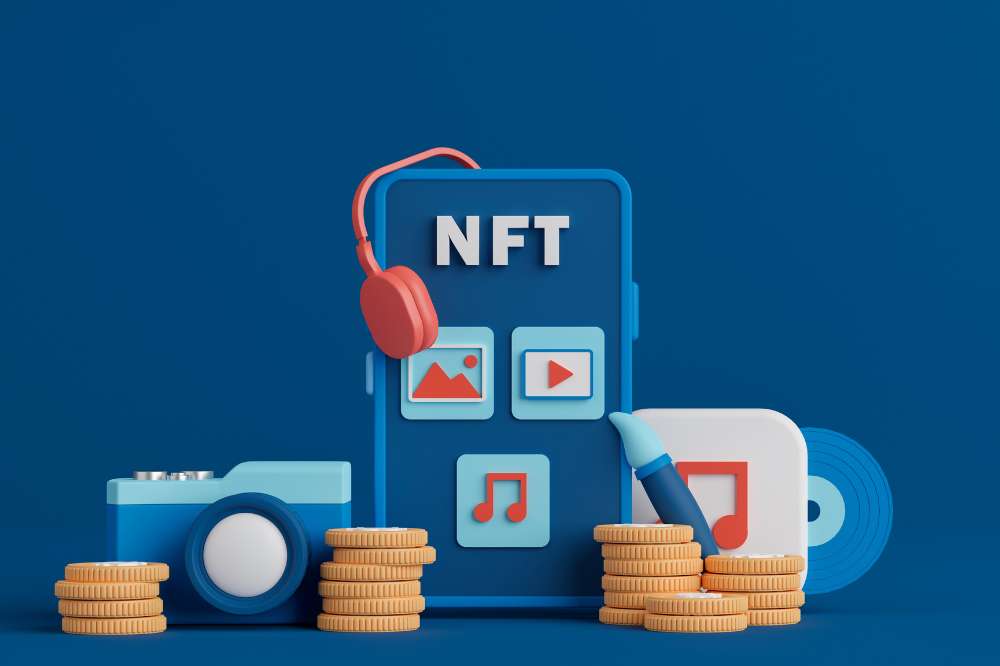Thousands of perfectly good toys, if not more, are thrown out every year just because they are old and not usable anymore. But, what if you could get rid of your old toys and exchange them for new ones?
Apparently, Toyswap was a crypto exchange platform based on the idea of buying, selling, and trading toys. But unfortunately, it was not a legitimate company. Toyswap crypto was an internet scam, which is quite common, and you should know how to recognize them. How did we find out it was fake? Keep reading to find out.
We will also talk about some of the most common financial scams and how to avoid falling for them. Let’s begin!
About Toyswap Crypto
Toyswap was a Singapore-based company introduced in the year 2020, which was designed to make swapping toys with each other easier. It allowed you to trade toys for coins called “toys.”
No products found.
Each token represented a real toy, which could be redeemed anytime. This cryptocurrency was advertised as a stablecoin, which is quite sought after as its value is pegged to a real currency and maintains a fixed value over time. Toyswap was pegged to the US dollar.
The company does not exist anymore.
Is Toyswap crypto Legit?
Toyswap crypto was not legit. There are other legit platforms where parents can list old toys and buy new ones in return. But this was not one of those.
Here is how we found out Toyswap crypto was a scam:
- After scouring the web, we couldn’t find any reliable sources on the internet that talk about toyswap crypto.
- The few websites that wrote about Toyswap all wrote different things, which indicates that it might be fake.
- Toyswap Crypto was registered under the domain toyswap.com. This site does not exist.
These signs indicate that Toyswap did not have any credibility and was likely to be a scam. This currency is also not available on any other exchange.
What Makes A Cryptocurrency Secure?
Cryptocurrency is a digital currency that is kept secure by cryptography. This means that it cannot be replicated. These cryptocurrencies are traded on decentralized exchanges online, which are based on blockchain technology.
A blockchain is a chain of blocks where each block contains confidential data. Each contains the data of a transaction made. Every block has a hash code, which is its unique identity, and it also stores the hash code of the previous block. This way, you can trace a chain of blocks by accessing one block.
In simple words, a blockchain is an online ledger that keeps a record of all transactions. It is nearly impossible to tamper with the data of a block or change its hash code. Changing the hash code takes 10 minutes, and you cannot stop after altering the block’s code. You have to do it for all the blocks in the chain, which is impossible.
This is why blockchain crypto is reliable and visible to everyone in the network for total transparency. If someone wants to change the data in a block, all the other members in the network will take a vote. This system is called the “Consensus Rule.” You can add or change an existing block only if you have the majority of votes.
Some Common Crypto Scams
The world of finance is no stranger to scams, from Ponzi schemes to countless Wall Street frauds. New ones sprout up every year to rob people of their hard-earned money. Online exchanges deal in many cryptocurrencies, but not all are 100% legit.
Here are some of the most common crypto scams that people fall prey to:
1. Rug Pulls
In such a scam, the developers of a currency attract investors and convince them to put money into their company. They gain popularity under pretenses, so the value of their currency rises. And then they bail with the money before the project is completed, leaving investors with useless currency.
A recent example of a rug pull scam is the Squid Game coin, named after the popular Korean show. The creators of this currency cashed out every penny and made over $3 million!
2. SIM Swap Scam
In a SIM swap scam, which is also known as SIM swapping, your phone number is ported to a different SIM in another device. With access to your SIM, the scammers will now be able to access your messages and calls. They will intercept the one-time passwords sent to your number and use them to get into your email, bank accounts, or other important accounts.
3. Exit Scams
Such scams are also called ICO (Initial Coin Offering) scams. Companies that are developing cryptocurrencies send an ICO to potential users to raise money for their projects. The company lures investors in by making promises of fast returns.
Many times, such schemes turn out to be fraudulent, and the scammers run off with the investors’ funds.
4. Phishing Scams
Phishing scams include sending out emails that contain links to the scammer’s website. Some websites are exact replicas of the real ones. They are made realistically to fool victims into entering their security information, such as email ID and password.
Often, some bad actors attempt to trick people into revealing their account passwords via fake links. Once the scammers have this information, they can access your bank account or crypto wallet and clean them out!
5. Fake Crypto Websites and Apps
The fake websites are made to look the same way as the real ones and have similar domain names as well to gain people’s trust. They either work as phishing sites or prohibit you from withdrawing money after you have invested in a cryptocurrency.
Similarly, fake cryptocurrency apps and wallets also exist that steal your coins when you store them.
How to Avoid These Scams?
Now that you know about the different cryptocurrency scams and their telltale signs, here is how you can avoid them:
1. Research Thoroughly
You should refrain from investing in a new cryptocurrency without doing your due diligence. It might be a trap to get you to invest. If you want to invest in crypto, then do your research thoroughly on the web to make sure it is legit.
Otherwise, try to stick to the ones that are already established and have a good footing in the market.
2. Multi-Step Authentication
To further strengthen your defenses, you should protect all your devices, like your mobile, laptop, and PC. You can do this by using a strong password and changing it at least once a month. You should also enable multiple-factor verification for your email and other important accounts.
3. Don’t Be Too Trusting of Social Media Ads
Social media is a big place where you meet new people and make connections. But it is also where many scammers target people for their fraudulent schemes. You should be suspicious of strange social media accounts doing crypto giveaways and using unauthorized images to advertise such things. Do not take anything to be true at its face value.
4. Keep Your Crypto Wallet Secure
Your crypto wallet is where all your crypto tokens are stored. If you receive emails or messages from firms asking you to share your account passwords for an investment opportunity, it is highly likely that it is a scam. Do not click on any links or disclose your wallet keys to anyone.
People Also Ask
We have answered some of the most commonly asked questions about cryptocurrency, which may help you decide whether to invest in it or not:
1. What is Pump-and-Dump Crypto?
Pump-and-dump involves spreading false information about a currency to inflate its price. Scammers attract potential investors by making up lies, and the people invest in the currency thinking they can make a quick buck. But after the price inflates, the conmen sell their holdings at a profit, causing the currency to crash.
2. Is Cryptocurrency A Good Investment?
It is no secret that people have earned millions by investing in successful cryptocurrencies such as Bitcoin. But the empire of cryptocurrencies is built on a slippery slope, which can go in any direction.
Investing does not come without its risks, but it can be quite profitable in the long run. Cryptocurrency is a good investment if you think digital currency is the future!
3. Is Crypto Legit?
Many people are still skeptical about investing in cryptocurrencies and think that they are a giant Ponzi scheme. And you can indeed get scammed in crypto. But you could also end up making a great investment for the future.
Cryptocurrency can be legit or a scam. So, do not make any huge investments without doing your homework.
Conclusion
Toyswap cryptocurrency is not legit, and there are many more like it out there. If you cannot find reliable sources of information about a company, it might be a scam. Be suspicious of anything that sounds too good to be true. And do not proceed before making sure that the currency is legit.
Do not respond to cold calls, spam emails in your inbox, or anyone offering gifts and money. Schemes like these are most likely to be scams, so be smart with how you handle them. And never share your account passwords or one-time verification codes with anyone.



